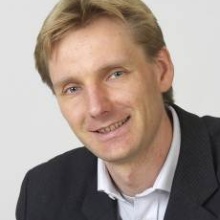Sustainable construction in high-growth metropolitan areas is currently a major challenge for the booming countries of Southeast Asia. European approaches are difficult to transfer to these countries, as they often lead to structural engineering and building physics problems due to the hot, humid climate. The German-Vietnamese cooperation project, CAMaRSEC, under the auspices of the University of Stuttgart, is investigating how the turnaround in energy and resources can succeed. The kick-off event was held in Hanoi in October.
The rapid commercial upturn, growing wealth and relocation of many people into the big cities have initiated a construction boom in Vietnam. Building typologies have been created, such as high-rises, built with materials and construction systems, which were not previously customary in Vietnam. New supply systems, such as air-conditioning systems, have also become the standard for a long time, along with the changed lifestyles and comfort requirements. The consequence of this is a huge rise in the consumption of energy and resources.
In order to implement the Paris Climate Targets for the Limitation of Global Warming against this background, the Vietnamese government has introduced new energy standards in recent years and issued regulations for the selection of materials. However, due to the extremely humid-warm outdoor climate and the cooled interior spaces, construction damage soon appeared on the new buildings, such as cracks in the walls and mold. “These problems lead to the innovative construction systems and energy-efficient construction having a bad reputation overall in Vietnam”, explains Project Manager, Dirk Schwede, Ph.D. Until December 2017, he was holder of the junior professorship "Sustainable Construction" of the Faculty, endowed by the Robert Bosch Foundation, now he works at the University of Stuttgart’s Institute of Building Energetics, Thermotechnology and Energy Storage (IGTE). Dr. Le Trung Thanh, the Director General of the Vietnamese Institute for Building Materials (VIBM), emphasized, as part of the conference in Hanoi: “The construction developers in Vietnam would like to build sustainably, however, reliable solutions are needed for this”.
Building physics laboratory and outdoor tests according to a German model
To research such solutions, the project partners, including the Fraunhofer Institute for Building Physics, in Vietnam, set up a building physics laboratory and an outdoor test field according to the model of institutions in Stuttgart and Holzkirchen. In these, investigations will take place regarding how various materials behave under the extreme climatic conditions of Vietnam and how they need to be incorporated. The local climatic and use-specific parameters are determined through extensive surveys by the University of Hamburg and through room climate measurements by the University of Stuttgart, the National University of Civil Engineering (Hanoi) and the Ton Duc Thang University (Ho-Chi-Minh City). The researchers at the University of Stuttgart are also working on the lifecycle assessment of building systems and, together with the VIBM, they are working on a labeling system for building materials on the Vietnamese market.
As construction damage is also partly a consequence of knowledge deficits when handling sustainable materials, the project partners, Bau Bildung Sachsen e.V. and the College of Urban Works and Construction in Hanoi, are also working on curricula for training construction workers, which are tailored to these materials and the local conditions.
Transfer to other countries
The “Climate-adapted Material Research for the Socio-economic Context in Vietnam” project (CAMaRSEC) is being subsidized by the German Ministry of Education and Research (BMBF) with a total of around EUR 2.1 million in the years 2019 to 2022.
The findings from this project are also intended to benefit sustainable construction in other Southeast Asian countries later on. For example, Dirk Schwede is also researching energy and resource efficient building and urban development concepts for the people of Cambodia, as part of the BMBF project “Build4people”. In addition to a reduction in energy consumption, the project is aimed at lower pollution emissions, a healthier urban climate and the sensitization of decision-makers and the population.
| Contact | Dirk Schwede, Ph. D., Universität Stuttgart, Institute of Building Energetics, Thermotechnology and Energy Storage (IGTE), Tel.: +49 (0)711 685-62090, dirk.schwede@igte.uni-stuttgart.de |
|---|


